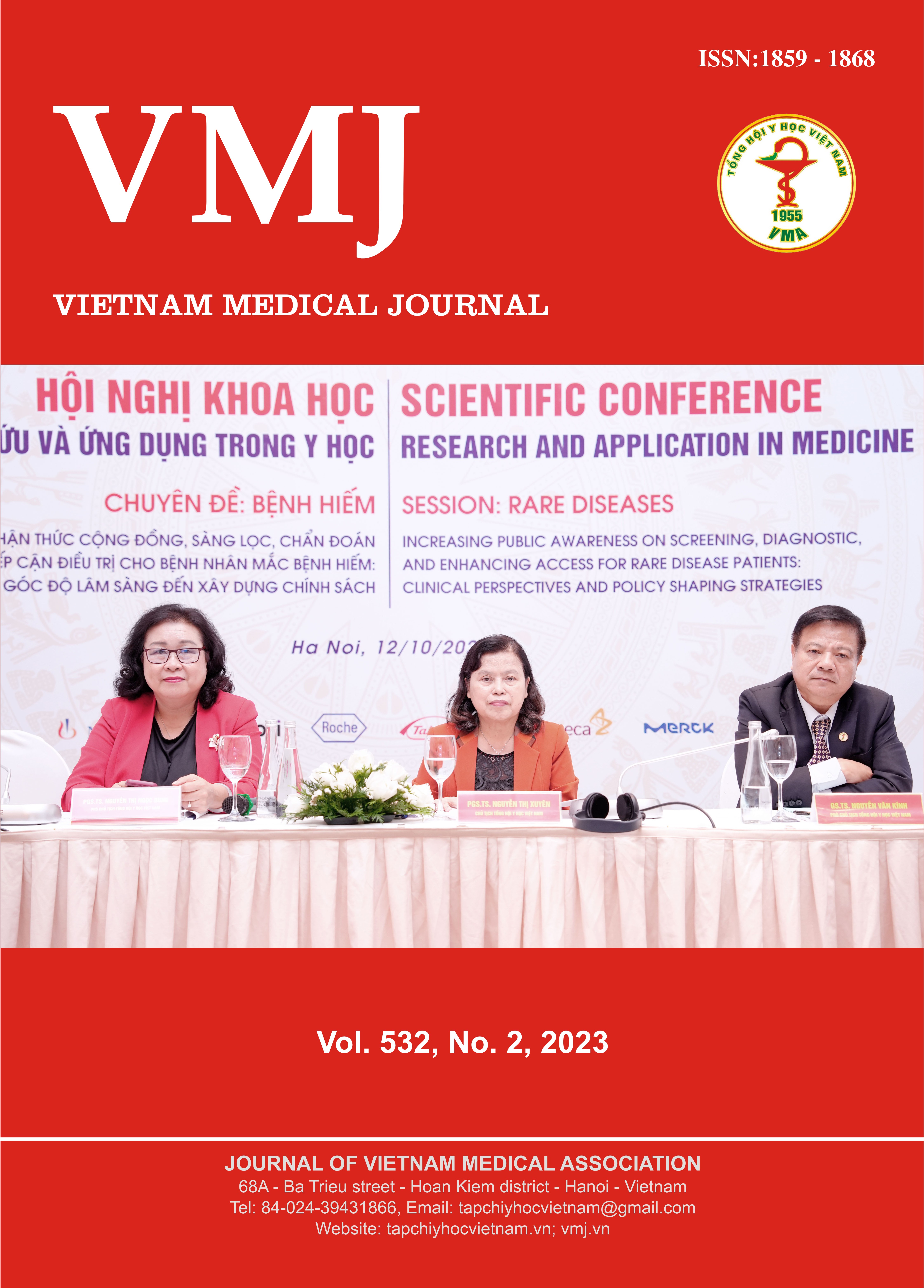EFFECTS OF NUTRITIONAL FORMULA SUPPLEMENTATION IN PEOPLE WITH ELEVATED LIVER ENZYMES
Nội dung chính của bài viết
Tóm tắt
The controlled randomized intervention study to evaluate the effects of nutritional formula supplementation in people having elevated liver enzymes was implemented in Ninh Binh province from March to September 2023. 120 participated subjects were randomly divided into 2 groups, each group had 60 subjects: the intervention group supplemented with 45 g of formula twice daily and the control group with regular diet. Results showed that indicators of liver enzymes, nutrition, and health in the intervention group were better than the control group with statistical significance: average aspartate aminotransferase (AST) level decreased by 45.32 UI/L (-4.29 ± 8.36 vs. 1.03 ± 0.45); average alanine aminotransferase (ALT) level decreased by 53.96 UI/L (-56.98 ± 6.53 vs. -3.02 ± 1.35) (p<0.001); Reducing amount of food decreased by 20% (p<0.01); Loss of appetite decreased by 16.7% (p<0.05); Constipation reduced by 15% (p<0.05); Diarrhoea decreased by 11.7% (p<0.05); No-deep sleep decreased by 40% (p<0.05); Fitful sleep decreased by 18.4% (p<0.05); Some indicators tended to be better but not statistically significant (p>0.05): Difficulty sleeping decreased by 10.0%; Itching decreased by 13.4%; Urticaria decreased by 6.6%; Respiratory infections decreased by 1.6%; Fatigue decreased by 10%; Anxiety and emotional changes decreased by 8.4%; and average weight increased by 0.1 kg with p>0.05. Product acceptability of users was 100% of which there were 73.3% very satisfied; 21.7% satisfied; and 5.0% accepted./.
Chi tiết bài viết
Từ khóa
Nutrition, elevated liver enzymes, AST, ALT
Tài liệu tham khảo
2. Prime Minister (2022). National Strategy on nutrition for the period 2021-2030 and vision to 2045 approved in Decision 02/QD-TTg dated 5th January 2022.
3. Kourkouta Lambrini, Frantzana Aikaterini, et al (2021). Milk Nutritional Composition and Its Role in Human Health. Journal of Pharmacy and Pharmacology 9 (2021) 10-15.
4. Savie Z, Vracaric V, et al (2018). Vitamin D supplementation in patients with alcoholic liver cirrhosis: A prospective study. Minerva Med. 2018;109:352–357.
5. Wu J, Meng QH (2020). Current understanding of the metabolism of micronutrients in chronic alcoholic liver disease. World J. Gastroenterol. 2020;26:4567–4578.
6. Dolores SR, Ester M et al (2019). Aspen and Espen: A postacute-care comparison of the basic definition of malnutrition from the American Soc.
7. Michelle K, Rachel L, et al. (2019). Micronutrients in Liver Disease: Roles, Risk Factors for Deficiency, and Recommendations for Supplementation; PMID: 31840874. DOI: 10.1002/ncp.10451.
8. Ministry of Health (2016). Decision No. 2615/QD-BYT dated 16th June 2016 on " Guidelines for recommended nutritional needs ".


